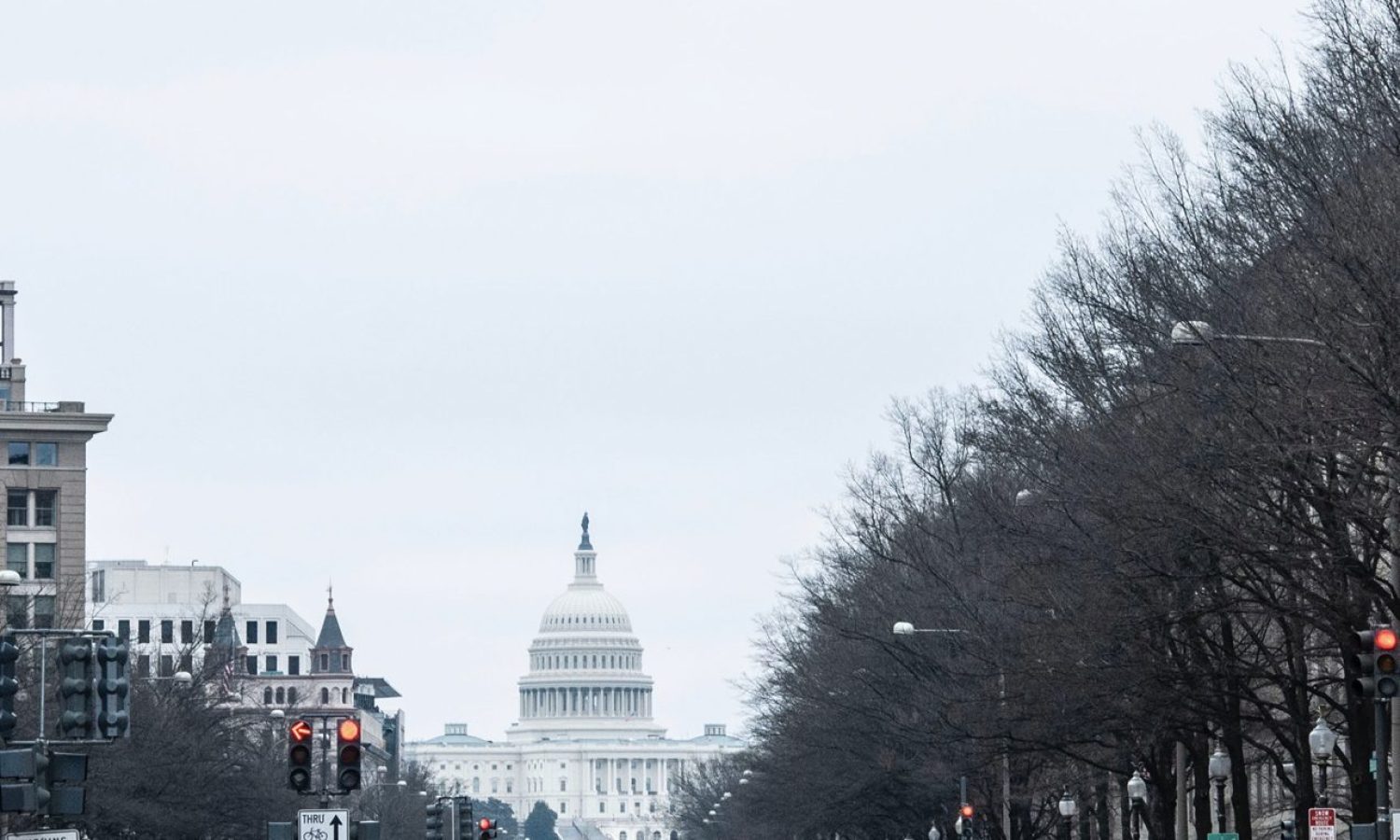i2Coalition Internet Infrastructure Policy Brief: March 2025
Your brief update on important Internet policy issues
OUTLOOK
After several weeks of tense uncertainty and sharp partisan debate, Congress avoided the threat of a federal government shutdown on March 14 by passing a continuing resolution to fund federal agencies through the end of September. The House and Senate Republican leadership also accelerated work in March on a compromise budget resolution to complete the procedural steps for use of the budget reconciliation process, which requires only a majority vote in the Senate. The U.S. House Speaker Mike Johnson (R-LA) wants a House vote on the massive reconciliation package–the legislative vehicle for achieving President Trump’s priorities, including spending levels, border security, defense, energy, and tax cut extensions–to be done by the May Memorial Day Congressional recess. With Cabinet secretaries confirmed, the Senate has moved on to conducting confirmation hearings for other senior Trump Administration officials. The Trump administration’s “America First” trade policy agenda continued to draw global headlines, with significant focus on an expected April 2 Presidential announcement that a reciprocal tariff policy will be imposed on all countries in order to end trade imbalances. Additional tariffs, including temporarily delayed 25% tariffs on Canadian and Mexican imports, as well as 25% tariffs on vehicles and auto parts imports, are also expected to go into effect in April. Through his tariff policy President Trump aims in significant part to incentivize companies to relocate their manufacturing to the U.S.
In the wake of litigation and mounting criticism inside the Trump administration of Elon Musk’s direction of U.S. government agency reorganizations and broad federal job cuts by the Department of Government Efficiency (DOGE), President Trump convened a special Cabinet meeting in March to assure the Cabinet secretaries that they–and not Elon Musk–are in charge of their own Departments. The President sought to assure his Cabinet that Musk and DOGE could make recommendations to the Departments, but could not unilaterally decide on staffing or policy. President Trump also ordered federal agencies to develop and submit plans for downsizing and reductions in force, with final implementation of the plans expected by fall. By month’s end, steady headlines in Washington about the Trump administration’s ongoing efforts to negotiate an end to the Russia-Ukraine war and reports on a collapse of the Israel-Hamas ceasefire in Gaza were largely eclipsed by news stories about a national security scandal. The world learned–from a report by the editor-in-chief of The Atlantic who was accidentally included in the governmental group chat–that top defense, security, intelligence, and White House officials (including the Vice President) were using Signal, the commercial, publicly available encrypted app, to discuss in real time highly sensitive operations and policy impacts of an imminent U.S. military strike against Yemen’s Houthis.
TECH POLICY PRIORITIES
Section 230/Intermediary Liability/Content Moderation. Senate Judiciary Ranking Member Dick Durbin (D-IL) and Senator Lindsey Graham (R-SC) are reportedly working on gathering bipartisan support for a sunset of Section 230 by January 1, 2027, but they have not yet introduced the legislation. Supporters of the TAKE IT DOWN Act, which the Senate has passed, are working to bring the bill to a vote in the House. The measure would criminalize publication of non-consensual intimate imagery (NCII) or the threat to publish NCII in interstate commerce and require its prompt removal by covered platforms.
Federal Privacy. Senators Markey (D-MA) and Cassidy (R-LA) have reintroduced the Children and Teens’ Online Privacy Protection Act (COPPA 2.0). The House Energy and Commerce GOP Working Group on Privacy is accepting by April 7 stakeholder responses to its request for information about the development of federal comprehensive data privacy and security legislation.
Copyright/IP. The House IP Subcommittee Chairman Darrell Issa (R-CA) is working on legislation to enable rights holders to seek judicial orders to block foreign websites dedicated to piracy. A federal judge has ruled that part of a copyright lawsuit brought by a group of authors against Meta under the Digital Millennium Copyright Act (DMCA) can move forward, focusing on allegations that the company removed copyright management information from books used to train its AI model in violation of the DMCA’s anticircumvention provisions. Another federal judge ruled that the New York Times lawsuit against OpenAI for alleged copyright infringement from using newspapers’ content to train OpenAI’s AI models can proceed.
Antitrust/Competition. The Senate confirmed Gail Slater as head of the antitrust division of the U.S. Department of Justice. The former Democrat FTC Commissioners removed from their positions by the President in March are suing the Trump administration in federal district court, alleging that their dismissals without cause violated federal statutes and longstanding Supreme Court precedent.
Broadband. The Senate Commerce Committee held a March 27 confirmation hearing for Arielle Roth, nominated to serve as the next NTIA administrator. Roth pledged to the Committee Senators that she would work with Congress on the ongoing implementation of the $42.5 billion Broadband, Equity, Access, and Deployment (BEAD) program to ensure that it lives up to its bipartisan legacy. Commerce Secretary Howard Lutnick recently announced that the BEAD program, which NTIA administers, would be reviewed to eliminate unnecessary requirements and to enable a tech-neutral, lowest-cost approach. On March 26, the Supreme Court heard oral arguments in the case challenging the constitutionality of the FCC’s Universal Service Fund contribution factor.
Find Out More…
For more in-depth updates on Internet policy, including issues that specifically impact your organization, please contact us about joining the i2Coalition.

